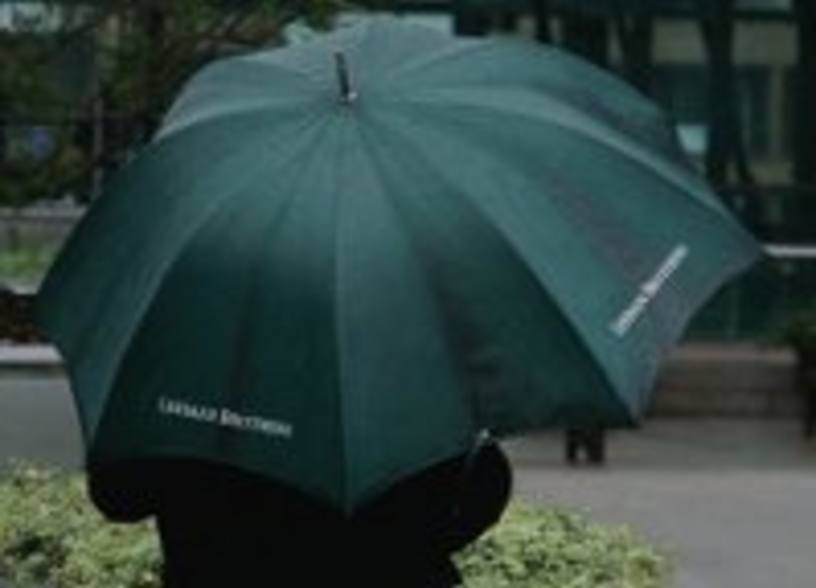Ever since Warren Buffett denounced derivatives as weapons of mass destruction in 2003, debate has raged between those who view these instruments as early-warning signals that protect investors and those who believe derivatives such as credit default swaps (CDS) destroy value and trigger bankruptcies.
In recent months, the Commodities Future Trading Commission (CFTC) has led the charge to bring new discipline to the CDS market with the aim of helping prevent future blow-ups of the likes of AIG or Lehman Brothers. CFTC commissioner Gary Gensler said in a speech this March that he was looking at revamping bankruptcy laws - an as-yet uncharted territory for derivatives reform. Ideas include requiring CDS-protected creditors of bankrupt companies to disclose their positions or to "specifically authorise bankruptcy judges to restrict or limit the participation of 'empty creditors' in bankruptcy proceedings".
As the US Senate finalises a financial reform package that could sharply curb the powers of big American banks, many are waiting to see how new rules might impact other measures, such as the bankruptcy law changes the CFTC is mulling. While many agree that greater transparency on CDS ownership would be welcome - especially among those sitting at restructuring tables - many also feel that the CFTC's bankruptcy reform will accomplish little as it is currently conceived. That is because much of the perceived damage happens in events leading up to bankruptcy - not during the process.
"If you buy protection on a company that goes into bankruptcy, your CDS contract is triggered and will be settled a few days after the auction," says John Williams, partner in the international capital markets department of New York-based law firm Allen & Overy. "The market participations put in bids and offers - there's a very specific auction mechanism. The price that comes out of that auction is the price you use to settle all the obligations for the company that is defaulted." Once the auction is settled, the auction price is used to settle all CDSs before bankruptcy - which means the CDS holder's contract is over. As Mr Williams puts it: "If you have a bankruptcy that lasts more than 35 to 40 days, you won't have a CDS exposure anymore [because it will have settled]."

Deborah Hicks Midanek, president and turnaround specialist at investment management firm Solon Associates
Empty argument?
A great deal rests on the validity of the CFTC's concerns about the impact of so-called empty creditors. These can arise, the CFTC warns, when bondholders and creditors have CDS protection that exceeds their actual credit exposure and may benefit more from the company's bankruptcy than if the company succeeds.
Others dismiss the CFTC's empty creditor concerns. Brian Yelvington, director of fixed-income research and strategy at institutional fixed income broker-dealer Knight Libertas in Greenwich, Connecticut, says that "naked" CDS participants, ie, those without an underlying economic interest in the firm - either debt or equity - "are not even in consideration for serving on creditor committees for such actions as pre-packaged bankruptcies". He also points out that "you generally must have significant underlying interests to participate in creditor committees - a pittance of economic interest will not do". Lastly, CDSs tend to settle well before the bankruptcy process is actually complete.
But what about regulatory concerns that CDS holders have divergent interests from other creditors around the table? Jeffrey Koppele, tax and derivatives partner at law firm Sonnenschein Nath & Rosenthal in New York, says: "You may have a number of people around the table with disparate interests. Some may have bought bonds for 20 cents on the dollar, others for 50 cents." What is important to remember, he cautions, is that "buying CDSs does not reduce the value of a bond - rather, it reflects that a market participant has already assigned a lower value to the bond and is willing to pay a CDS premium to express that view".
But it is precisely this point of view that can cause trouble, depending on when it is expressed and how. CDS holders can have a powerful incentive to prefer bankruptcy because they are entitled to get par value in a filing. In other words, the protection seller must pay the buyer the par value of the bond in exchange for physical delivery of the bond or settlement through cash or auction.
That means a CDS holder - a direct reflection of the CFTC's concern - can have more incentive to see a company fail than to promote a restructuring, where they may get less than par. But contrary to the CFTC's stated concerns, this problem tends to erupt before the company tips into bankruptcy. Restructuring specialists say there have been at least four debt exchanges over the past year where the company turned to creditors to reduce the terms and amount of its debt outstanding, but ran into trouble when CDS holders refused to go along because they could do better if the company went into bankruptcy - including the Gannett and McClatchy companies.
McClatchy, for instance, had offered to exchange as much as $1.15bn in notes for deeply discounted new notes that pay far higher yields, but the uptake on the offer proved very low because, traders say, CDS holders were betting more heavily on a default. According to one restructuring specialist: "People were holding out because they had CDS and their view was, let's play out the options. I can see why the holder would do that, but it certainly complicates the ability to do any out-of-court restructuring."
David Resnick, a turnaround specialist and managing director and co-head of investment banking at Rothschild, says: "A CDS holder will get par if the company files for bankruptcy when the underlying security is trading at a significant discount. This creates a very challenging dynamic with the company's restructuring and, in my mind, raises questions."

Bankruptcy and CDS timeline
Automatic stays might help
Some suggest the only real way to prevent a future Lehman or AIG meltdown is if bankruptcy codes are amended to include an automatic stay, which applies to other creditors when a company files. An automatic stay gives the debtor and its creditors time to develop plans to preserve and maintain the value of the assets and even enhance values by avoiding a forced, unplanned liquidation that can depress values for everyone involved.
It has been argued that, had Lehman and AIG's CDS holders also been subject to an automatic stay - rather than, in many instances, being closed out when the company filed for bankruptcy - the companies would have been spared the liquidity haemorrhage when CDS contracts were automatically settled.
Harvey Miller, partner at the New York-based law firm Weil, Gotshal & Manges and the lead bankruptcy attorney for the Lehman Brothers estate, testified last year before a US judiciary committee that Lehman "might have had what it needed to survive, or at least experience a soft landing", had the bankruptcy code been able to offer liquidity and stay protection, or a freeze on creditor obligations. But the CFTC has yet to take this on, at least publicly.

Jeffrey Koppele, derivatives partner at international law firm Sonnenschein Nath & Rosenthal
Power limitation
While many restructuring specialists advocate changes that would limit the powers of CDS holders in distressed situations, many also agree that it will be tough to do in a meaningful way, short of banning the instruments. "[CDS participants] are only doing what the market is giving them every opportunity and incentive to do," says Deborah Hicks Midanek, president and turnaround specialist at investment management firm Solon Associates. "I really don't know how you protect against that, short of outlawing the CDS and speculation on corporate failure."
Mr Gensler has already suggested publicly that a ban is unlikely, meaning that it remains unclear what can really change, even if the commissioner forces greater disclosure during bankruptcy proceedings. For instance, CDS holders would still have the power to vote down debt exchanges that can cause companies to fail. And while the CFTC could soften the impact of CDS payouts by at least pushing for automatic stays, it appears the regulator is more intent on rooting out CDS 'abuses' and preventing them from bringing a company to its knees in the first place. Based on the current rules of the road, however, that may be tough to do for some time yet to come.












